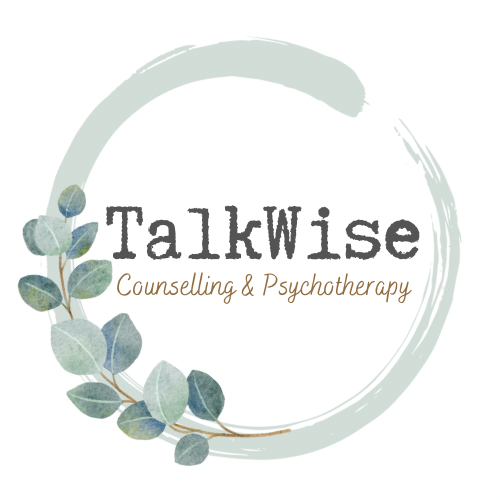Counselling or Psychotherapy?

Counselling and psychotherapy share the common goal of fostering emotional well-being, yet they differ in scope and focus. Counselling often addresses specific issues and provides support during life transitions, emphasising short-term problem-solving.
Psychotherapy, on the other hand, tends to explore deeper psychological patterns and their roots, aiming for long-term change. While both involve a therapeutic relationship, psychotherapy delves into the subconscious, analysing complex emotional structures. In essence, counselling is often solution-focused and practical, while psychotherapy has a more profound, exploratory nature, seeking to unearth and transform fundamental aspects of one’s psychological landscape for enduring personal growth and healing.
TRTP™ – The Richards Trauma Process
TRTP™ is an elegantly simple, yet comprehensive, step-by-step process which resolves extreme trauma and trauma-related issues – anxiety, depression, fears and phobias. It achieves results quickly, effectively and safely – generally in 3 to 4 extended sessions (90 to 120 minutes).
It is a truly eclectic therapy. It is a very structured, yet dynamic process. It includes components of Gestalt, Mindfulness, Ego-state Therapy, Choice Therapy, Cognitive Therapy, Parts Therapy, Emotion-focused Therapy, Motivational Interviewing, Dream Rehearsal Therapy and others.
It is a dynamic, rich and sequenced series of steps, which, if separated would not be anywhere near as powerful. It is unique. It allows space for the individual client’s needs to be met.
TRTP™ makes use of deep imagination. Deep imagination is used in order to deal with trauma where it is stored – in the subconscious and in the body. (Levine, van der Kolk, Rothschild, Ogden).
TRTP™ is in alignment with the two requirements stated by van der Kolk, Levine and other trauma experts:
For trauma to be resolved –
- the person must (somehow) be moved to an empowered position in regard to the trauma
- the body must (somehow) know that the event / events are over
TRTP™ initially deals with the underlying, unconscious core beliefs which keep a person stuck in patterns of thought, emotion and behaviour. In dealing with this at the beginning of the process, self-sabotage is avoided during the following therapy.
TRTP™ then takes the emotional charge from the past, moving the client to a place of empowerment in relation to the trauma. Because deep imagination is used, the therapist can then speak directly to the body and to the unconscious. The client is shifted from fight/flight/freeze and moved to an empowered, self-regulated state. The sympathetic nervous system is calmed. The memory of the trauma is placed firmly in the past.
The client quickly moves from their state of fight, flight, freeze – ‘I’m not safe!’ To, ‘It’s over. I’m safe now…’ Calm returns, on all levels. Symptoms cease.
TRTP™ does not merely address the symptoms of trauma. It deals with the underlying cause of the problem, removing the emotional charge from the past and returning the person to a state of empowerment, returning the sympathetic nervous system to calm.
TRTP™ is effectively delivered face to face and online. If you would like to book a free 30 minute information session with Sallyanne to see if TRTP is right for you please contact TalkWise Counselling & Psychotherapy.
Internal Family Systems
Internal Family Systems (IFS) therapy, a compassionate approach developed by Richard C. Schwartz, views the mind as a harmonious system of sub-personalities. It gently explores and nurtures these parts, fostering self-awareness and healing. By fostering understanding and connection with oneself, IFS guides individuals towards emotional balance and resilience.
Sallyanne has completed Level 1 Internal Family Systems training and continues to engage with ongoing professional development and supervision specific to IFS.
Brainspotting Therapy
Brainspotting therapy is a therapeutic approach that helps individuals process and overcome trauma and emotionally distressing experiences. By identifying “brainspots” linked to emotional experiences, clients, guided by a trained therapist, explore and release deep-seated emotions. This compassionate method fosters healing, unlocking transformative potential for those seeking profound emotional well-being and resilience.
Sallyanne has completed Phase 1 and 2 Brainspotting therapy training and continues to engage with ongoing professional development and supervision specific to this modality.
HeartMath® Heart-Focused Breathing
Heart-focused breathing is a technique that involves paying attention to the rhythms and sensations of the heart while intentionally regulating the breath. It’s a simple yet powerful tool that can help improve mental, emotional, and physical well-being. In this post, we’ll explore the benefits of heart-focused breathing and provide some examples to help you get started.
- Reduces stress and anxiety
Heart-focused breathing has been shown to be an effective way to reduce stress and anxiety. When we focus on the sensations of our heart and regulate our breathing, we activate the parasympathetic nervous system, which is responsible for relaxation and calming the body. This can help us feel more centered and grounded, which can be especially helpful during times of stress or anxiety.
- Improves emotional regulation
Heart-focused breathing can also help us regulate our emotions. When we focus on our heart and regulate our breathing, we create a sense of inner calm that can help us stay more emotionally balanced. This can be especially helpful for people who struggle with intense emotions or who have difficulty regulating their emotions.
- Enhances intuition and decision-making
The heart is often considered to be the center of intuition and wisdom. When we focus on our heart and regulate our breathing, we can tap into this inner wisdom and make better decisions. This can be especially helpful for people who struggle with decision-making or who feel disconnected from their intuition.
- Boosts immune function
Heart-focused breathing has also been shown to have a positive effect on the immune system. When we activate the parasympathetic nervous system through heart-focused breathing, we reduce the production of stress hormones, which can have a negative impact on the immune system. This can help improve our overall health and well-being.
Heart-focused breathing is a simple yet powerful tool that can have a positive impact on mental, emotional, and physical well-being. By focusing on the rhythms and sensations of the heart while regulating the breath, we can reduce stress and anxiety, improve emotional regulation, enhance intuition and decision-making, and boost immune function.
Sallyanne is a Trauma-Sensitive HeartMath® Certified Practitioner.
People With Disability
Counselling can assist people living with disability to improve their sense of wellbeing through building life and relationship skills and developing a greater understanding of themselves. Counselling sessions are focused on the specific needs and goals of the individual and delivery is tailored to suit preferred learning styles. Sallyanne believes in a person-centred approach to counselling, working together to meet the client’s goals.
Clients with appropriate funding available in their plan may be able to utilise NDIS funding for counselling to help them reach their life goals.
Professional Supervision
Supervision is a form of professional support, reflection, and learning and is relevant to a wide range of professions such as counsellors, psychologists, social workers, and disability support workers. Professional supervision is essential to ensure the well-being and competency of all those responsible for the care of others.
Sallyanne has achieved her Certificate of Attainment in the RISEUP model of supervision which focuses on the function of supervision as an opportunity for the Supervisee’s development across multiple aspects of their professional and clinical practice including:
- Evaluation
- Administration
- Education
- Support
- Business Building/Career Support,
Sallyanne is a registered supervisor with the Australian Counselling Association College of Supervisors.
Sallyanne has experience in building a successful private practice in a regional area, servicing a wide range of counselling clients, including clients with disability, with a variety of presenting issues. In addition, Sallyanne has previously worked in the non-profit sector as a counsellor, support worker and peer worker.
If you would like more information about supervision services please contact Sallyanne to answer any questions you may have.
